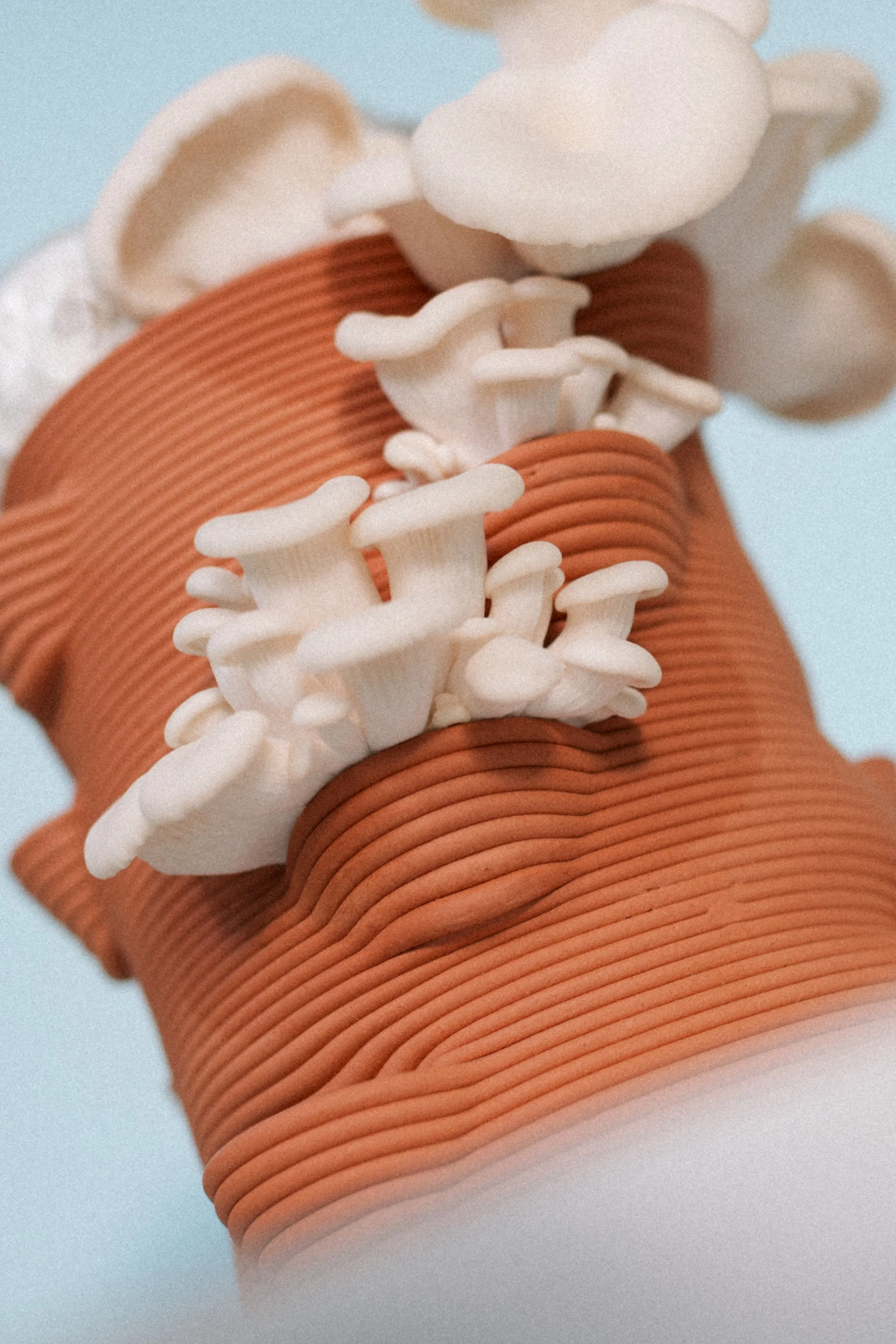Mycelia House is a cultivation system for growing and showcasing the beauty of oyster mushrooms in the home.
The design promotes a move towards more sustainable food practices, an appreciation of the fungi kingdom, and a deeper connection with nature.
Be the first to buy one!




